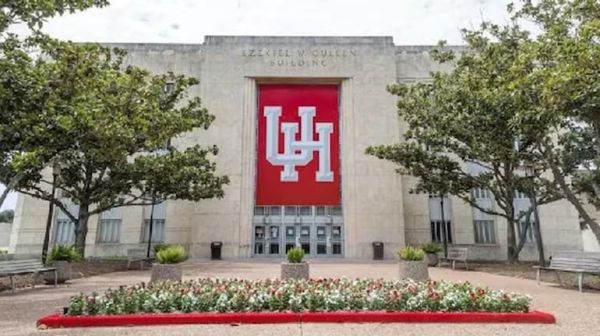
The University of Houston (UH) has reiterated its commitment to academic freedom following a formal complaint from Indian-American student Vasant Bhatt. Bhatt, a political science major, alleged that the course Lived Hindu Religion misrepresents Hinduism and promotes “Hinduphobia.”
Bhatt filed the complaint with the Dean of the College of Liberal Arts and Social Sciences, accusing course instructor Professor Aaron Michael Ullrey of portraying Hinduism as a political weapon used by Hindu nationalists. He also criticized the university’s response, suggesting that the religious studies department failed to address his concerns directly.
In a public statement, UH defended the course content, stating that it is academically grounded in the religious studies discipline. The course uses analytical terms such as “fundamentalism” and “Hindutva” to examine religious movements across major world religions, including Christianity, Islam, Buddhism, and Hinduism.
The university emphasized that such terminology is applied within an academic framework and may carry different meanings than in public or political discussions. Following a detailed review of the complaint, the Dean and the Director of Religious Studies concluded that the course meets established academic and pedagogical standards.
Professor Ullrey clarified that the course is rooted in descriptive anthropology rather than theological instruction. “I have never claimed to define the essence of Hinduism,” he said. “Doing so would go against the course structure and my 25 years of research.”
He addressed concerns regarding quotes allegedly labeling Hinduism as a colonial construct, asserting that such statements were misquoted or taken out of context. “The course recognizes Hinduism as an ancient tradition, with diverse rituals and mythologies originating in South Asia,” he added.
The course explores the complexity of Hindu traditions and their development over time, emphasizing that Hinduism is not monolithic but consists of multiple practices and interpretations.
UH stressed that the course aims to help students understand how religions evolve in response to historical, political, and social forces. Referencing current events — such as the rise of Hindu nationalism in India — is part of examining religion’s role in modern society, not a direct critique of Hindu beliefs.
On the matter of Indian Prime Minister Narendra Modi being described as a “Hindu fundamentalist,” Ullrey noted that the term was used in an academic sense to categorize political ideologies, not as a personal opinion or insult.
The university reaffirmed that academic freedom is essential for faculty to engage students in challenging but necessary conversations. “This course is designed to encourage balanced, critical discussions and provide students with a nuanced understanding of religion’s relationship with society,” UH said.
Read More: Albanese Plans One-on-One with Trump as Tariff Tensions Heat Up Ahead of Australian Election